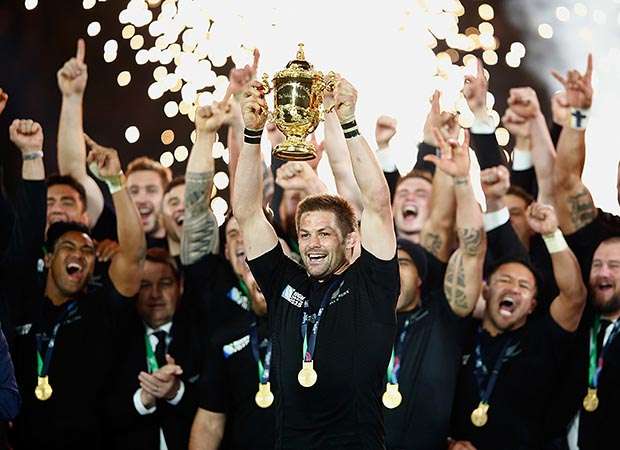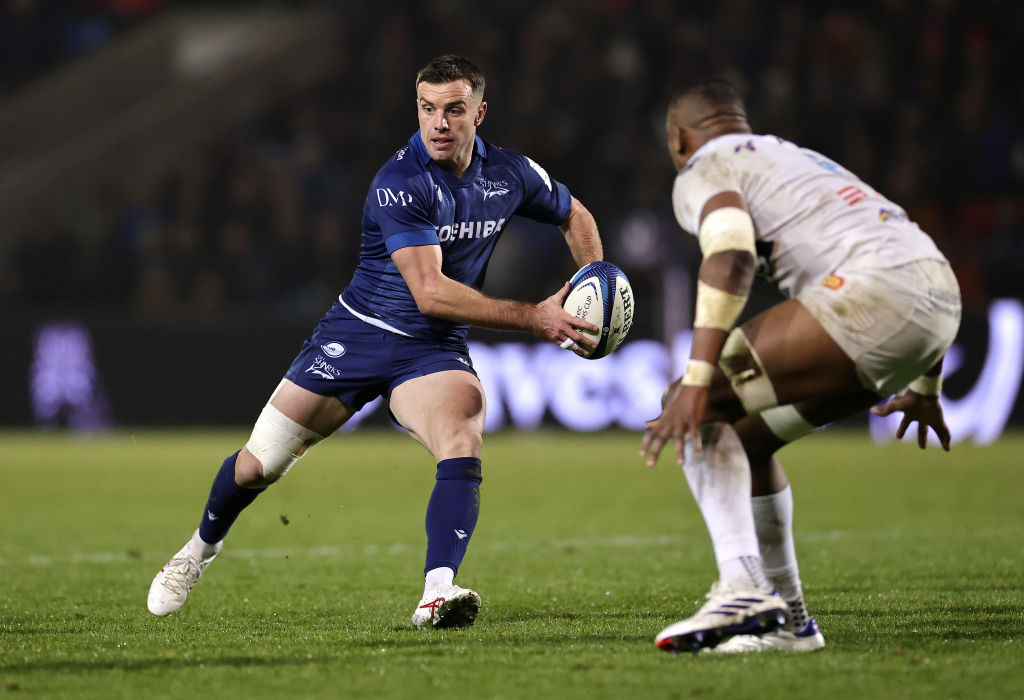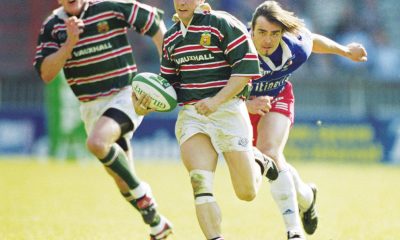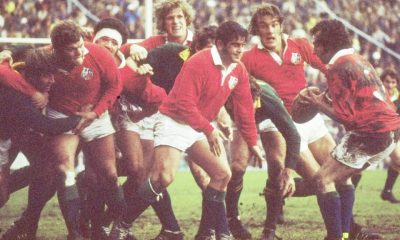
 In between winning World Cups, Steve Hansen took a course in horse whispering for reasons far removed from the block-busting Hollywood movie starring Robert Redford.
In between winning World Cups, Steve Hansen took a course in horse whispering for reasons far removed from the block-busting Hollywood movie starring Robert Redford.
By the sound of it, Hansen loves his stable of race horses as much as the All Blacks. In reflective moments, he will tell you about equine etiquette and how humans can learn from horses.
How appropriate, then, that a large man who outgrew his boyhood ambition to be a jockey should wind up at Twickenham yesterday watching his thoroughbreds romp home by a distance.
Hansen could have been forgiven for thinking that he had witnessed the two-legged equivalent of Arkle, Desert Orchid, Kauto Star and L’Escargot all rolled into one. And that was before Beauden Barrett finished the Wallabies off with a dash that would have given Nijinsky a run for his money.
Yet again, on the biggest stage of all, they ensured that more tries and points were scored in this final than any other.
If Hansen were to walk away tomorrow, shed a few stone and reinvent himself at Aintree next March as a Grand National jockey, he will forever be remembered as the first coach to preside over winning finals at successive World Cups.
The farmer’s son from the South Island who began his working life in the freezer at the Canterbury Meat Company may have done more than that. Before the double champions treated the crowd to an encore of The Haka, the great and the good were already wrestling with an inevitable question: Are these All Blacks the best team of all-time?
Old-timers will stop and think about the 1971 Lions of Barry John and Gareth Edwards, Mike Gibson and Willie-John McBride, the first and last British and Irish team to win a series in New Zealand.
In World Cup terms, these All Blacks are in the same bracket as those of almost 30 years ago which is saying something. One way of gauging true greatness is to measure the gap between the champion and the next best in the world. Richie McCaw’s team did that yesterday by a margin of 17 points.
As a boy of six, McCaw would probably have watched the first World Cup final in 1987 on television and seen how the All Blacks then routed the next best team, France, by 20 points. The Grand Slam champions of Europe had Serge Blanco, Philippe Sella, Pierre Berbizier and Eric Champ and still lost by the length of the boulevard Saint-Michel.
In overwhelming Italy, Fiji, Argentina, Scotland, Wales and then the French, they scored 43 tries, spread out among a team featuring John Kirwan, Sean Fitzpatrick, ‘Buck’ Shelford, the Whetton brothers, the incomparable Michael Jones and an ex-London bobbie from Lewisham, John Gallagher.
Over a longer course, seven matches instead of six, McCaw’s team ran in 39.
Comparisons can be odious, all the more so when the comparison is between amateur and professional, between a more competitive global scene now than then.
If the pool stage had not stretched them beyond the first hour against Argentina, the fact that they had to overcome the Springboks and Wallabies makes a mockery of any accusation that they had it easy. When it mattered most, they made it look easy – just as Pele’s Brazilian footballers, Clive Lloyd’s invincible West Indies cricketers and Tiger Woods in his pomp made it look easy.
Dan Carter, his propensity for dropping effortless goals at crucial times underlined again, made a difficult art look ridiculously easy. That hallmark of greatness could be found all over the pitch, from Brodie Retallick and Sam Whitelock up front to Ma’a Nonu and Nehe Milner-Skudder at the back.
Hansen must have learnt something from his horses about when to make a change because his half-time substitution of Conrad Smith by Sonny Bill Williams changed the game. It took the new centre all of two minutes to apply his magnetic touch, pulling in three opponents before sending Nonu off on his diagonal dance to the line.
Despite putting them 21-3 clear, Ben Smith’s expensive yellow card meant that the holders had to win the game twice. After the Wallabies had narrowed the gap to 21-17, the Kiwis responded to the distant threat of extra-time in champion style with ten points in the final ten minutes.
In racing parlance, they won it going away. Nobody would have appreciated that more than Hansen, not that he dared allow himself any extravagant jubilation lest it would detract from the team.
The very antithesis of Jose Mourinho, Hansen made a point of seeking out the Wallabies and shaking their hands, one by one. When the game’s first double champions broke into their victory jig on the podium, their blazered coach stood at the end of the back row, then slipped away to leave the stage to the players.
He has come a long way from the dark days of his apprenticeship with Wales, when his morose reaction to a third-rate team racking up defeat after defeat earned him the nickname, Mr Grumpy.
Just as there is no question about Carter being the best fly half the game has seen, the same may yet be said of Hansen as a coach. He has won 50 of his 55 Tests in charge of the All Blacks and nobody will be surprised if he makes it three-in-a-row in 2019, assuming the RFU don’t offer him a million or two to run England.
In that event, he will probably do a bit more whispering and get it straight from the horse’s mouth.


Latest News
George Skivington playing it smart at Gloucester


























You must be logged in to post a comment Login